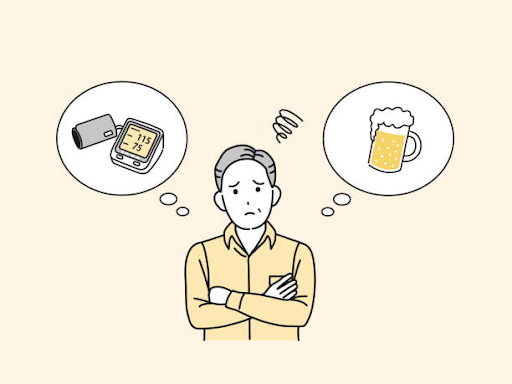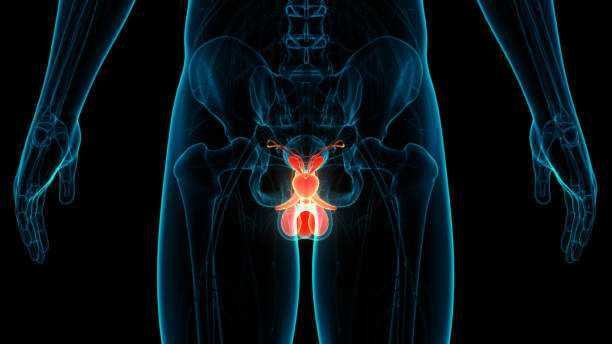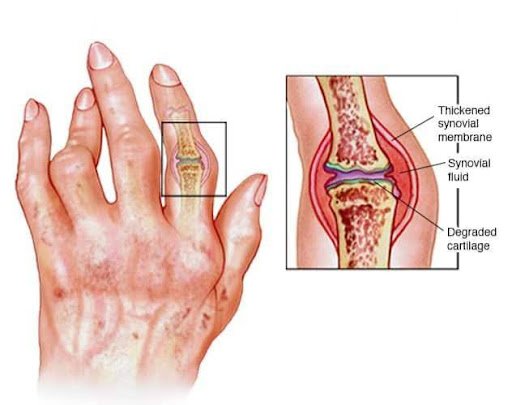Reducing Dementia Risk: Lifestyle Tips for Under 65s

Recent medical discoveries have shed light on the complex nature of dementia, particularly in older individuals.
As you may already know, dementia is an unstable state of the mind that usually occurs as a mental deterioration or a mental impairment. It is usually associated with old age or some form of mental illness.
However, contrary to popular belief that older people stand very little chance in the fight against dementia, emerging research suggests that individuals under the age of 65 can significantly lower their dementia risk through improved lifestyle choices and various other factors.
Thus, this article aims to provide a comprehensive exposition of some of these recent medical discoveries about dementia in older people. We’ll also explore their implications and navigate through a few professional tips to combat dementia.
The final sip of this article is our top medical advice on dementia which would arm you in the journey into old age with more strength, sanity, and mental energy.
Now, that you’re ready, let’s take the ride!
Chapters
Dementia: Recent Medical Discoveries
1. Amyloid Beta Protein and Dementia:
Recent studies have revealed a strong link between the accumulation of amyloid beta protein in the brain and the onset of dementia. One of these discoveries reveals that elevated levels of this protein form plaques which disrupts neural communication and contribute to cognitive decline.
Today, researchers have utilized advanced imaging techniques to visualize these plaques in living brains, which now provide crucial insights into the progression of dementia.
2. Genetic Predisposition and Cognitive Decline:
Latest advancements in genetic research have uncovered specific gene variants that are associated with an increased risk of dementia. Early identifying these genetic markers allows for a prompt detection and targeted interventions.
In addition, researchers are exploring the role of epigenetics – how lifestyle and environmental factors influence gene expression – in modulating dementia risk.
3. Microbiome and Brain Health:
Studies have revealed that the gut-brain connection has gained attention, also highlighting the impact of the microbiome on cognitive function. A balanced gut microbiota appears to play a role in reducing inflammation and promoting overall brain health.
The good news is, Probiotics and dietary interventions are being explored as potential strategies to maintain a healthy gut and mitigate dementia risk.

A Brief History of Dementia and How it was Discovered:
The term “dementia” traces its origins to the Latin word “demens,“ which means “out of mind.”
The condition came to brighter light in the early 20th century when pioneers like Alois Alzheimer made ground-breaking observations, identifying distinct brain abnormalities, such as plaques and tangles in individuals with dementia.
This laid the foundation for our current understanding of dementia as a neurodegenerative disorder.
Fortunately, the study and approach to addressing this mind condition has improved over the years, with latest researches even boosting chances of permanent solutions.
Early-Onset Dementia: How Common Is It?
One of Alzheimer’s Disease International research projects reveals the likelihood of increased dementia, from 55 million people globally in 2020 to about 139 million people by 2050.
This astounding estimate suggests that a quicker approach is needed in the quest to discover the factors that conduce to developing the disease, while also finding ways to combat this situation completely.
Early-onset dementia, characterized by symptoms appearing before the age of 65, represents a relatively small percentage of all dementia cases.
Although dementia is more commonly associated with aging, studies have also revealed that approximately 5-10% of individuals with dementia experience onset before the age of 65.
This early manifestation often presents unique challenges, because affected individuals are typically still in the workforce and actively engaged in social and familial responsibilities.
Now, although young-onset dementia is rare, however, according to a report by CDC, young-onset Alzheimer’s disease still affects about 200,000 individuals in the United States.

New Associated Risk Factors for Early-Onset Dementia:
Traditionally, age and genetics were considered the primary risk factors for dementia. However, recent research has identified additional risk factors associated with early-onset dementia.
Some of these risk factors include:
- Cardiovascular health.
- Traumatic brain injury.
- Social isolation.
- Exposure to environmental toxins.
- Alcohol Use disorder.
- Depression
- Stroke
- Lower level of education.
- Deficiency in Vitamin D.
- High C-reactive protein level.
- Diabetes.
Understanding these new risk factors allows for targeted preventive strategies and interventions. Further studies shows that it is expedient to maintain top physical and mental health, particularly in the mid-life stages.

Activities that Stave Off Dementia: Can Reading, Puzzles, or Similar Activities do the Job?
Engaging in mentally stimulating activities, such as reading, puzzles, and other cognitive exercises, has been associated with a reduced risk of dementia.
These activities promote neuroplasticity – the brain’s ability to adapt and form new connections.
Studies suggest that a mentally active lifestyle can enhance cognitive reserve, providing a buffer against the effects of neurodegenerative processes.
Some Engaging Exercises that Address and Tame Dementia:
Physical exercise has emerged as a powerful tool in the fight against dementia.
Aerobic activities, strength training, and balance exercises have been shown to improve brain health by enhancing blood flow, reducing inflammation, and promoting the release of neuroprotective factors.
Therefore, by integrating a variety of exercises into daily routines, risks of dementia can be significantly diminished, hence contributing to overall well-being.

12 Modifiable Risk Factors for Dementia.
Researchers have identified 12 modifiable risk factors that, when addressed, can significantly reduce the risk of dementia. These include:
- Midlife Hypertension: Managing blood pressure is crucial for brain health.
- Obesity: Maintaining a healthy weight reduces the risk of cognitive decline.
- Physical Inactivity: Regular exercise enhances overall brain function.
- Hearing Loss: Addressing hearing impairment helps maintain cognitive abilities.
- Smoking: Quitting smoking reduces vascular and neurodegenerative risks.
- Depression: Managing mental health is essential for cognitive well-being.
- Social Isolation: Staying socially engaged supports cognitive health.
- Diabetes: Controlling blood sugar levels mitigates dementia risk.
- High Cholesterol: Managing cholesterol levels contributes to brain health.
- Traumatic Brain Injury: Minimizing head injuries reduces dementia risk.
- Excessive Alcohol Consumption: Moderate alcohol intake supports cognitive function.
- Air Pollution: Reducing exposure to environmental toxins benefits brain health.
Study Shows, Sitting More than 10 Hours a Day Could Increase Dementia Risk:
A study found that individuals who sit for more than 10 hours a day have a higher likelihood of developing dementia compared to those with less sedentary behaviour.
Breaking up prolonged sitting with short bouts of physical activity has been suggested as a simple yet effective strategy to lower dementia risk.
Action Tips to Reduce Dementia Risk:
Taking proactive steps to reduce dementia risk involves a combination of lifestyle modifications and health management.
This includes adopting a balanced diet rich in antioxidants and omega-3 fatty acids, engaging in regular physical and mental exercises, maintaining social connections, managing chronic health conditions, and avoiding tobacco and excessive alcohol consumption.
Consultation with healthcare professionals can provide personalized guidance based on individual risk factors.

How Can Exercise Decrease Risk of Dementia?
Regular exercise contributes to dementia risk reduction through multiple mechanisms.
Exercise improves cardiovascular health, enhances blood flow to the brain, reduces inflammation, and promotes the release of neurotrophic factors that support the growth and survival of neurons.
Additionally, physical activity has been associated with improved mood, stress reduction, and better sleep – all of which contribute to overall brain health.
What Type of Exercise is Best to Prevent Dementia?
A combination of aerobic exercise, strength training, and balance exercises is deemed effective in preventing dementia.
Aerobic activities, such as walking, jogging, or swimming, increase blood flow to the brain. Strength training helps maintain muscle mass, and balance exercises reduce the risk of falls, which can be particularly detrimental for older individuals.
Thus, tailoring exercise routines to individual preferences and capabilities is crucial for long-term adherence.
Personalized Lifestyle Changes that Could Improve Brain Health:
Individualized lifestyle changes play a pivotal role in improving brain health and reducing dementia risk. These may include:
- Nutrition: Adopting a Mediterranean-style diet rich in fruits, vegetables, whole grains, and healthy fats.
- Cognitive Activities: Engaging in mentally stimulating activities, such as reading, puzzles, and learning new skills.
- Physical Exercise: Incorporating a mix of aerobic, strength, and balance exercises into daily routines.
- Social Engagement: Maintaining strong social connections and participating in community activities.
- Stress Management: Practicing stress-reducing techniques, such as meditation or yoga.
Lifestyle Risk Factors for Dementia:
Several lifestyle factors contribute to the risk of dementia. These include:
- Dietary Habits: Poor nutrition, especially diets high in processed foods and saturated fats.
- Physical Inactivity: Sedentary lifestyles without regular exercise.
- Sleep Disorders: Inadequate or disrupted sleep patterns.
- Chronic Stress: Persistent stress negatively impacts brain health.
- Social Isolation: Lack of social connections and engagement.
Substance Abuse: Excessive alcohol consumption and illicit drug use.
Nonpharmacological Approaches to Prevent Dementia Risk:
Nonpharmacological interventions focus on lifestyle modifications and behavioural changes rather than relying solely on medications. These approaches include:
- Cognitive Training Programs: Activities that stimulate the brain and enhance cognitive function.
- Physical Exercise: Regular aerobic, strength, and balance exercises.
- Nutritional Interventions: Adopting a brain-healthy diet rich in antioxidants and omega-3 fatty acids.
- Mental Health Support: Addressing and managing conditions like depression and anxiety.
Social Engagement: Encouraging social interactions to combat isolation.

Our Top Medical Advice for You on Dementia:
Based on the current understanding of dementia and its risk factors, our top medical advice includes:
- Regular Health Check-ups: Schedule routine health check-ups to monitor blood pressure, cholesterol, and other vital markers.
- Cognitive Assessments: Consider cognitive assessments, especially if there are concerns about memory or cognitive function.
- Lifestyle Modifications: Adopt a brain-healthy lifestyle, incorporating balanced nutrition, regular exercise, and mental stimulation.
- Social Connections: Foster and maintain social connections to support mental and emotional well-being.
- Consult Healthcare Professionals: Seek guidance from healthcare professionals to create a personalized dementia risk reduction plan.
Frequently Asked Questions:
1. Can Dementia be Prevented Completely?
While complete prevention may not be guaranteed, adopting a healthy lifestyle and managing risk factors can significantly reduce the likelihood of developing dementia.
2. At What Age Should I Start Taking Measures to Prevent Dementia?
It is never too early to adopt a brain-healthy lifestyle. Initiating preventive measures, including regular exercise and a balanced diet, from midlife onwards can be beneficial.
3. Is Dementia Genetic, and Can I Inherit it from My Parents?
Genetic factors can contribute to dementia risk, but they are not the sole determinants. Lifestyle choices and environmental factors also play critical roles.
4. Do Medications Exist to Prevent Dementia?
Currently, there are no specific medications to prevent dementia. However, certain drugs may help manage symptoms in individuals already diagnosed with the condition.
In conclusion, the landscape of dementia research is continually evolving, offering hope for proactive measures to reduce the risk of cognitive decline.
By understanding the latest discoveries, historical context, and modifiable risk factors, individuals can take informed steps toward maintaining optimal brain health throughout their lives. Early intervention, a holistic approach to lifestyle, and staying informed are key elements in the ongoing battle against dementia.
Disclaimer: The information in this article is not intended to be a substitute for professional medical advice, diagnosis, or treatment. Always seek the advice of your physician or qualified healthcare provider with any questions you may have regarding High Blood Pressure or any other medical condition.
Related Post
Reducing Dementia Risk: Lifestyle Tips for Under 65s
February 3, 2024
Health & Medicals
Recent medical discoveries have shed light on the complex nature of dementia, particularly in older…
Read More

Loss of Sex Drive in Men: Is it Associated with Age?
February 3, 2024
Health & Medicals
As men age, various changes occur in their bodies, and one aspect that often raises concerns is the…
Read More

How Much Exercise do you need to enjoy Maximize Health? Find out
January 20, 2024
Health & Medicals
Hi friend, you’re here to learn the secrets to a longer and healthier life, and one of our top picks…
Read More
Also, for more insights into men’s health and well-being, check out these articles on our page.
RHEUMATOID ARTHRITIS
January 16, 2024
Health & Medicals
Buckle up for a chat on Rheumatoid Arthritis—a comprehensive understanding of its operation. Imagine…
Read More

ALCOHOL & BLOOD PRESSURE: What’s The Connection?
January 16, 2024
Health & Medicals
Have you ever wondered if that evening drink might be having a subtle chat with your blood…
Read More

CAUSES OF HIGH BLOOD PRESSURE
January 3, 2024
Health & Medicals
Welcome aboard, health enthusiasts! Now, we know, discussing the causes of High blood pressure might…
Read More

What Causes High Blood Pressure in African Men | Treatment Options
December 6, 2023
Health & Medicals
Today, we’re diving into a topic close to our hearts, quite literally – high blood pressure. If…
Read More

Enlarged Prostate: What are the Symptoms and Treatment Options?
November 21, 2023
Health & Medicals
Enlarged Prostate: How does this happen? How can I Avoid or Treat it? Image Source: Freepik…
Read More

Get rid of Arthritis Pain permanently: 5 Natural Cures
November 11, 2023
Health & Medicals
Get rid of Arthritis Pain permanently: 5 Natural Cures Navigating Arthritis for African Men OUTLINE…
Read More


Your point of view caught my eye and was very interesting. Thanks. I have a question for you.
Hi, we are happy to take your questions.